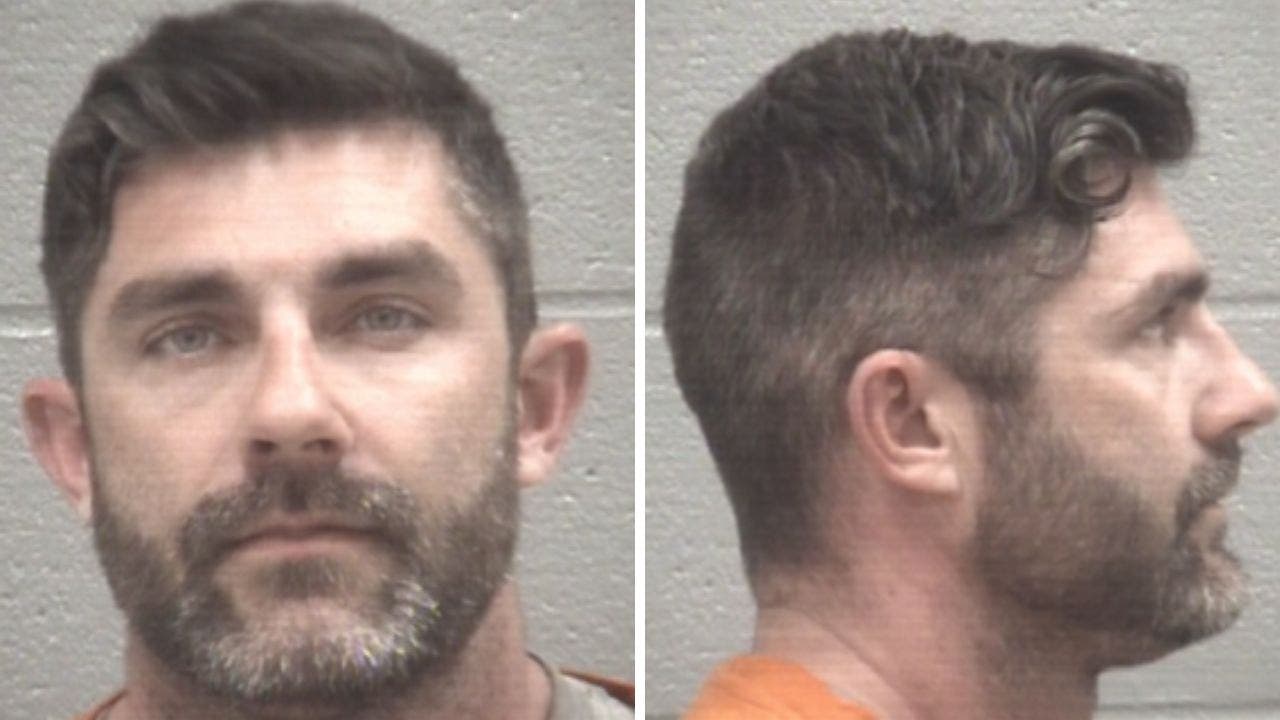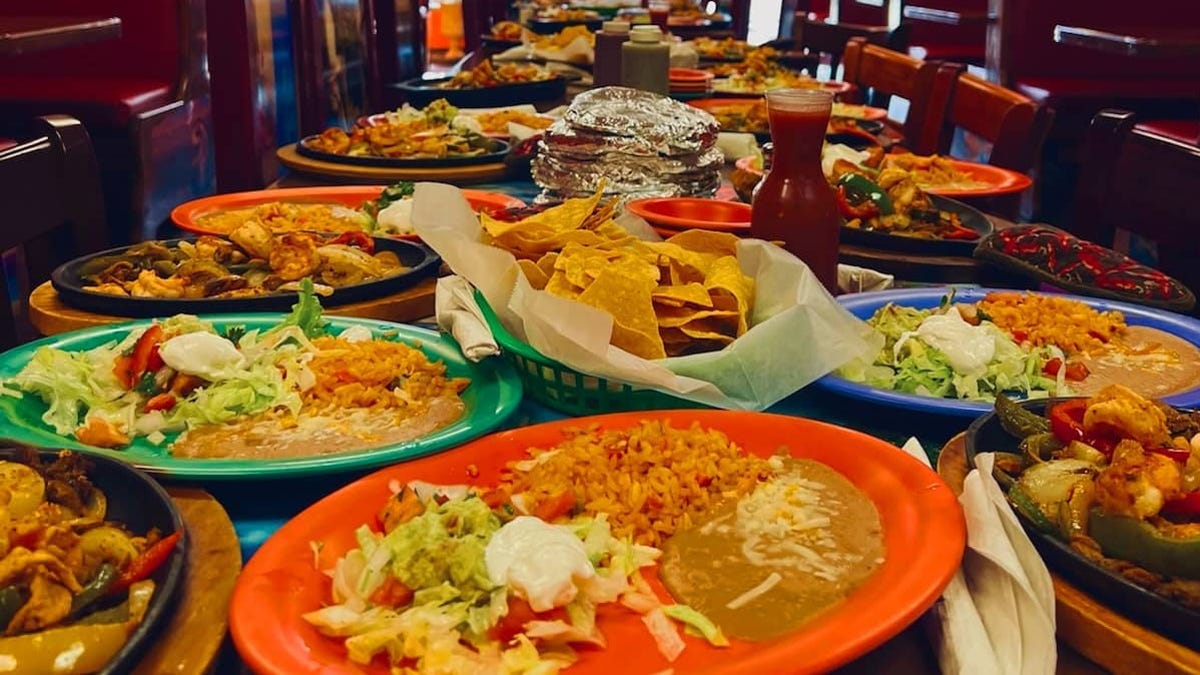Idaho
Bryan Kohberger Missed Class Day After Idaho Murders, Claims Classmate

Bryan Kohberger treated female professors with “disrespect” and made a female classmate uncomfortable by repeatedly asking her out, claims a grad student who attended Washington State University with the suspected murderer.
In an interview with ABC News’ “The King Road Killings,”a fellow grad student at Washington State University claims Kohberger was “sometimes rude and condescending,” and capable of becoming angry over “seemingly minor issues like being docked a point or two in class.”
When angry, the grad student alleges that “Kohberger’s face would turn bright red and he clenched his fists until his knuckles were white.”
A second colleague in the same program similarly described Kohberger’s behavior to ABC News.
The grad student claims Kohberger “lacked respect for people’s boundaries,” telling ABC News he allegedly developed a crush on a female in the criminology program and began “repeatedly asking her out and staring at her.” This woman allegedly felt so “uncomfortable” that “other students made a point of never leaving them alone together,” says the grad student.
ABC News said that grad student spoke on the condition of anonymity.
In his role as a teacher’s assistant, Kohberger allegedly made his undergraduate students feel uncomfortable, according to the grad student. He would allegedly have his office hours run late into the evening and violated protocol by keeping his door closed according to the grad student. The grad student claims they began to stay in their office after some students voiced their discomfort.
That grad student claims that Kohberger’s fellow PhD students begin tracking his behaviors that bothered them, especially what they saw as disrespect towards female professors.
The alleged “disrespect” noted by the group included “how many times he interrupted female professors and skipped their classes,” says the grad student.
That decision to track Kohberger’s behavior could pay off for prosecutors in the upcoming murder trial since it allegedly noted that the man suspected of killing four people in the early morning hours of Sunday, Nov. 13 did not attend class on Monday, Nov. 14.
Kohberger’s defense team did not respond to a request for comment. A gag order prohibits his attorneys from speaking publicly about their client or his case.
Kohberger is accused of killing four University of Idaho students in the middle of the night at an off-campus house.
Three of the victims — Madison Mogen, 21; Kaylee Goncalves, 21; Xana Kernodle, 20 — lived in the home. The fourth victim, 20-year-old Ethan Chapin, was in a relationship with Kernodle.
Kohberger told a previous public defender that he expects to be exonerated at trial. In May, he declined to enter a plea after being formally charged with four counts of murder. The judge in the case entered a not guilty plea on his behalf.
In a filing last month, his defense team questioned the strength of the case against their client, claiming that the DNA of three other men had been discovered at the murder scene.
The filing also claims that there is a “total lack of DNA evidence from the victims in Mr. Kohberger’s apartment, office, home, or vehicle.”
Another piece of evidence that the defense says is lacking is the identification of the suspect’s car.
The probable cause affidavit references a “white sedan” but makes no mention of make or model. Jay Weston Logsdon, the attorney for Kohberger, says that there is only one sighting of a vehicle that is certainly a Hyundai Elantra.
Kohberger owned and drove a 2016 Elantra.
These claims were included in the defense’s objection to prosecutor’s request seeking a protective order for the genetic genealogy testing done in the case.
The defense is seeking a detailed breakdown of how FBI agents utilized genetic genealogy to initially identify Kohberger as a person of interest in the case.
The state is arguing that since DNA from a buccal swab provided by the suspect after his arrest matched the DNA found on a knife sheath at the scene, the genetic genealogy results will play no role in the upcoming trial and are inconsequential to proving the suspect’s guilt or innocence.
The judge has not yet ruled on that mater. If convicted, Kohberger could face the death penalty.
Related Stories

Idaho
1 dead, 2 hospitalized in early morning crash north of Soda Springs – East Idaho News

SODA SPRINGS – One teen is dead and two other people have been hospitalized following a single vehicle crash north of Soda Springs Sunday morning.
It happened at 1:30 a.m. on Government Dam Road, according to a news release from Idaho State Police.
A 19-year-old boy, whose name was not specified, was driving south in a 2007 GMC Sierra pickup. He drove off the road after missing a curve. ISP reports alcohol was a contributing factor.
The driver’s condition is unknown, but there were several passengers in the car with him who were injured. One of them, a teenage girl, died at the scene. Two others, whose conditions are unclear, were hospitalized. One was airlifted to the hospital and the other was taken by ground ambulance.
ISP says only the driver was wearing a seatbelt.
The road was blocked for about three and a half hours while emergency responders were on scene.
ISP is grateful to Caribou County Sheriff’s Office, the Soda Springs Police Department, Classic Air and Caribou County Ambulance for their help.
The crash remains under investigation.
=htmlentities(get_the_title())?>%0D%0A%0D%0A=get_permalink()?>%0D%0A%0D%0A=htmlentities(‘For more stories like this one, be sure to visit https://www.eastidahonews.com/ for all of the latest news, community events and more.’)?>&subject=Check%20out%20this%20story%20from%20EastIdahoNews” class=”fa-stack jDialog”>
Idaho
More than $20K in North Idaho College scholarships will be awarded

Registration opens Monday for the North Idaho Women and Their Money Conference, a free event designed to promote financial confidence and competence for women of all ages and walks of life.
“It’s so fascinating; the demographics are all over the board for who this is for,” co-organizer Teresa Irish said in an April 18 phone interview.
The inaugural conference will be from 8 a.m. to 5 p.m. June 9 at North Idaho College. The day will feature sessions exploring such topics as entrepreneurship, building wealth, insurance and creating plans for financial stability as well. Educational exhibits and resources will be on site as well.
A keynote presentation will be delivered by New York Times best-selling author and nationally recognized money expert Ellen Rogin, who will also participate in a breakout session.
“We’re really excited,” Irish said. “She’s very down to earth. She has such a commonsense approach to communication about money that makes you feel like it’s a commonplace topic we should all be able to talk about.”
Irish said Rogin is very disarming for people, a quality that makes a sometimes frustrating and formidable topic not so intimidating.
“Her laid-back style will make you think, ‘This isn’t that hard,’” Irish said.
The conference will have seats for 500 guests, allocated on a first-come, first-served basis. The conference committee set a goal of welcoming 400 participants, but overwhelming community interest and support led organizers to expand the event.
“Understanding the basics of financial terms and strategies will help bring a person to a feeling of security and provide a launching pad to achieve other life goals,” co-organizer Jan Tymesen said. “It is our privilege to offer this to the women of North Idaho.”
Irish said the conference is for women who want to learn, connect and grow.
“Whether starting out, starting over, balancing life as a single mom, planning for retirement, this isn’t just about money,” she said. “It’s about confidence that comes with knowledge, informed decision making and realizing your goals and dreams are within reach.”
Those who attend the North Idaho Women and Their Money Conference will also be given opportunities to earn $1,000 NIC scholarships that will support vocational training, workforce development and credit-based educational programs. Attendees can include their interest in being considered for a scholarship directly on the registration form. At the close of the conference, winners will be randomly selected and announced live, adding a meaningful and memorable moment to an already empowering day. As contributions to the scholarship fund increase, so does the number of scholarships to be awarded to the 500 women attending the conference.
“We are blessed to be a blessing and to help others create lasting value in their own lives,” Tymesen said. “We understand that financial literacy is a key driver of economic stability and empowerment. We are honored to support this conference with our time, talents and treasures.”
Visit northidahowomenandtheirmoney.com for registration details and info.
Idaho
This Idaho Falls street will be closed as crews replace a waterline – East Idaho News

The following is a news release from the city of Idaho Falls.
IDAHO FALLS – The City of Idaho Falls will be closing Anderson Street between Boulevard and Holmes Avenue beginning Sat., April 26, to allow crews to access and replace a waterline near the intersection of Anderson & Holmes. The closure is part of a critical infrastructure project aimed at ensuring the continued reliability of the city’s water system.
Local businesses will remain accessible from the Science Center during the closure. Drivers are advised to reduce speeds, obey all traffic control signage, and remain alert for construction crews working in the area.
The City of Idaho Falls thanks residents and businesses for their understanding and support during this necessary improvement to the city’s infrastructure.
For further information, contact the City of Idaho Falls Public Works Department at (208) 612-8250.
=htmlentities(get_the_title())?>%0D%0A%0D%0A=get_permalink()?>%0D%0A%0D%0A=htmlentities(‘For more stories like this one, be sure to visit https://www.eastidahonews.com/ for all of the latest news, community events and more.’)?>&subject=Check%20out%20this%20story%20from%20EastIdahoNews” class=”fa-stack jDialog”>
-
News1 week ago
Harvard would be smart to follow Hillsdale’s playbook. Trump should avoid Biden’s. | Opinion
-

 Politics6 days ago
Politics6 days agoVideo: Hegseth Attacks the Media Amid New Signal Controversy
-
Business1 week ago
Porto's Bakery moving forward in Downtown Disney, replacing Earl of Sandwich
-

 Culture5 days ago
Culture5 days agoNew Poetry Books That Lean Into Calm and Joy Amid Life’s Chaos
-

 Politics1 week ago
Politics1 week agoSupreme Court blocks new deportations of Venezuelans in Texas under 18th century Alien Enemies Act
-

 News1 week ago
News1 week agoMaps: Where Do Federal Employees Work in America?
-

 Politics7 days ago
Politics7 days agoPope Francis and US presidents: A look back at his legacy with the nation's leaders
-

 World6 days ago
World6 days agoNew Zealand’s minor gov’t party pushes to define women by biological sex

















